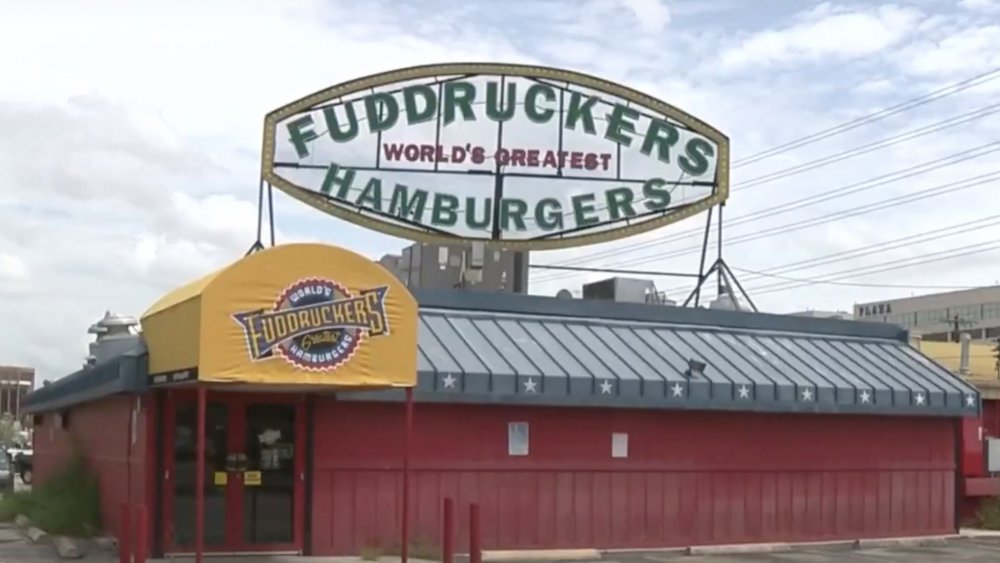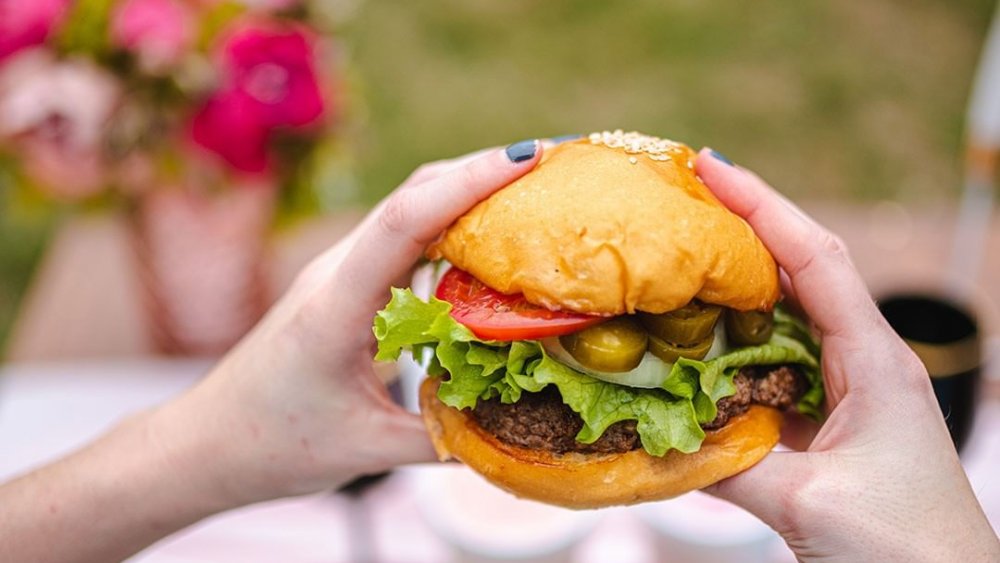Fuddruckers Is In Serious Trouble. Here's Why
Many of us have probably never heard of Fudpucker World Airways, "headquartered" in Hicksville, New York. But according to China Clippers, the mythical, steam powered airline was the inspiration for the name of a restaurant that Philip J. Romano first opened in 1980 called Freddie Fuddrucker's (via Thrillist) which eventually grew into a chain simply known as Fuddruckers. The restaurants were built on the premise of serving all fresh, 100 percent USDA premium beef in a variety of patty sizes, where guests built their own burgers from a buffet of fixings on a freshly-baked bun.
And while Fuddruckers had its day in the sun, the chain's current owners, Luby's, now says it will need to sell all 31 of its Fuddruckers restaurants and 76 of the burger chain's sister company Luby's Cafeteria — which opened in 1947 — after sales were hit hard by the coronavirus pandemic (via CNN).
Fuddruckers was in trouble before the pandemic hit
Industry watchers like Eat This, Not That! may not be too surprised by the announcement. It reported back in May that Luby's had already said it would need to sell some of its corporate-owned Fuddruckers locations to franchisees so it could pay off its debt. In the beginning of 2019, there were 57 Fuddruckers around the country; by the time the pandemic hit, that number was down to 40 — and 35 of those outlets were closed due to COVID-19. During the third quarter of this year, which is about the time when many states were under quarantine, Fuddruckers earned just $1.4 million, compared to $15.3 million during the same time last year.
Fuddruckers won't have to close its doors permanently if Luby's can find a buyer for the burger chain. But if it doesn't, Luby's plans to sell all of its business assets which include the two restaurant chains, a culinary contract business, and its real estate holdings, so it can distribute between $92 million and $123 million dollars to its shareholders (via The Wall Street Journal).
Luby's management says its shareholders appeared to prefer the option of keeping the brands alive, if it was possible."Our stockholders have expressed their support for seeking alternatives to continuing to operate the company's restaurants in their current form, and we believe the [liquidation plan] will allow the company to accomplish that task in the most efficient manner," it said (via CNN).

